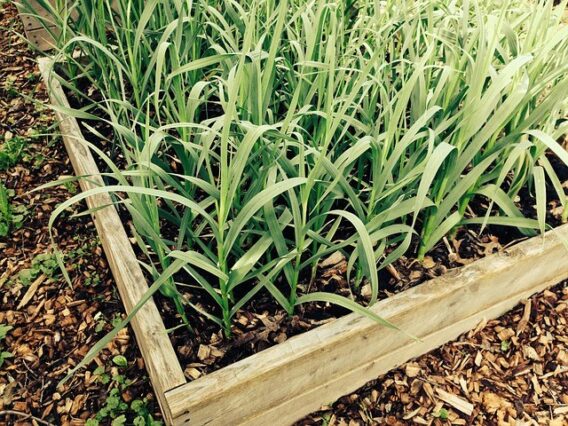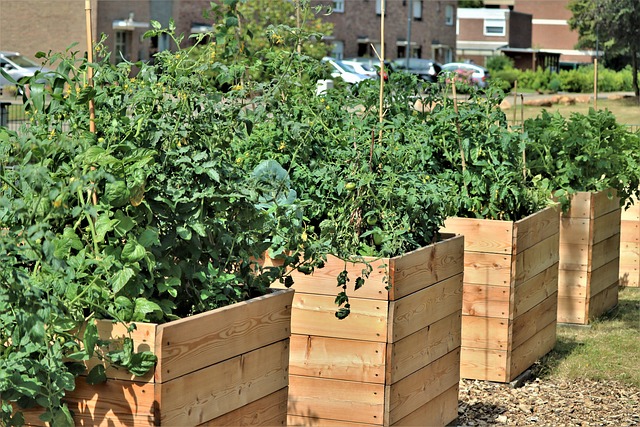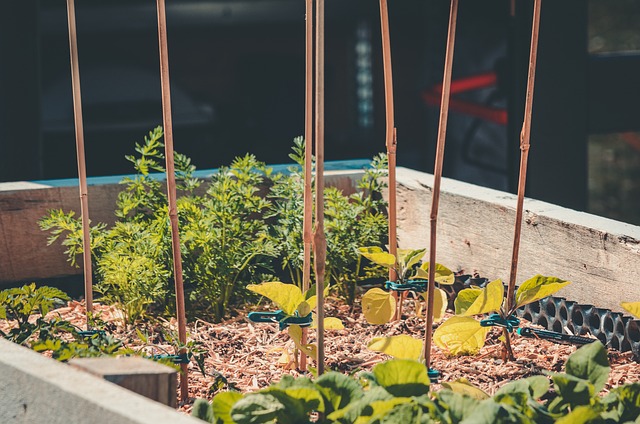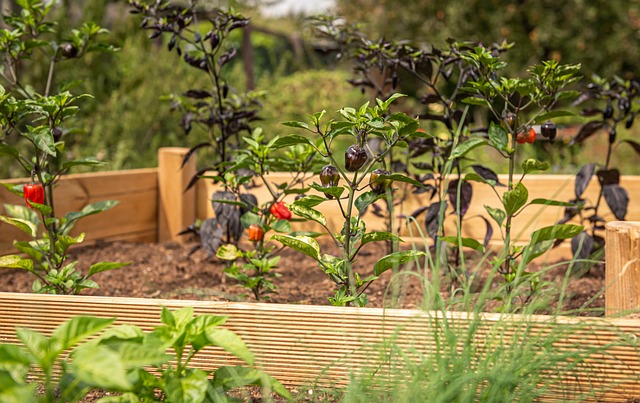Raised garden beds are an increasingly popular way to cultivate fruits and vegetables – not to mention they give your garden a neat and tidy appearance. But that’s not all, there are many additional benefits of raised garden beds. So, let’s take a look!

What are the Benefits of Raised Beds for Vegetables?
Improved Soil Quality for Plants
By filling raised beds with high-quality, nutrient-rich soil, gardeners can create an optimal growing environment for vegetables. This allows for better root development, improved nutrient uptake, and overall healthier plants.
If you have problem soil, such as a heavy clay, a raised garden bed can be filled with the right kind of soil for plant growth. Similarly, you can create the right conditions for different plant requirements. Herbs that enjoy a sandy soil, plants that prefer alkaline… you can create beds for whatever plants you choose to grow.

Increase Yield with Raised Beds
With proper soil preparation and maintenance, raised beds can provide optimal growing conditions for vegetables. The controlled environment facilitates better plant growth, leading to increased yields and healthier produce.
Less Strenuous Gardening with Raised Beds
The raised height of the beds reduces the need for bending or kneeling, making gardening more comfortable and accessible for people with mobility issues or back problems.
Raised beds can be customised to a specific height that suits the gardener’s needs, making it easier for them to reach and tend to their plants without straining themselves. This is especially beneficial for older individuals or those with disabilities who may have difficulty getting up and down from the ground.
Extended Growing Season
Raised beds warm up more quickly in the spring, allowing for earlier planting and an extended growing season. Furthermore, covering the beds with protective materials such as row covers or tunnels can help prolong the harvest and protect plants from frost.

Improved Drainage
Raised beds are typically filled with loose, well-draining soil, allowing excess water to flow away more easily. This helps prevent waterlogging and improves root health by ensuring proper soil moisture levels. Also, because the soil is never walked on, it doesn’t become compacted. This allows air pockets in the soil structure, improving drainage.
Improved Weed Control
Raised beds provide a clear boundary between the garden and surrounding areas, making it easier to control weeds. With the proper installation of a barrier beneath the soil, gardeners can minimise weed intrusion from below as well. Because the soil in raised beds is separate from surrounding garden soil, weeds do not spread, and the ones that do begin to grow are easily pulled out of the loose soil.
Pest Control and Disease Management
Raised beds allow for better control of pests and diseases. The elevated planting area makes it harder for crawling pests to reach the plants. Carrot fly, for example, only fly a few inches from the ground, so carrots grown in a raised garden bed are less likely to be affected. Read more about natural pest control here. The use of fresh soil also helps reduce the risk of soil borne diseases.

Aesthetically Pleasing
Raised beds can add visual appeal to a garden landscape, providing structured and organized spaces. They can be built in various shapes and sizes, allowing for creativity and customisation. Rectangles, hexagons, squares…. the design is up to you!
Another benefit of raised garden beds is that they can be made from most building materials, such as bricks, breeze blocks or wooden timbers . These are garden structures that are designed to last, so choose a material that you find aesthetically pleasing. Also, if you do use timbers, make sure they are not treated with anything toxic that could leach into the soil. Thankfully, most modern wood preservatives are safe.
The Takeaway on Benefits of Raised Garden Beds
The top benefits of raised garden beds is that they can help create a productive, convenient and enjoyable vegetable growing experience. Remember, successful gardening in raised beds requires regular watering, appropriate nutrient management, and overall attentive care. With these considerations in mind, they are a good way of growing fruit and veg productively, with less work!
Do you use raised garden beds to grow vegetables? Please share your tips here!
